Dean Barbara Wolfe and the faculty of the URI College of Nursing welcomed the Class of 2023 into the nursing profession during the semi-annual White Coat Ceremony on Sept. 8. Due to the COVID-19 pandemic, the students donned their coats remotely during the virtual ceremony.
Dean Wolfe began the ceremony by recited the Code of Ethics for Nurses:
- The nurse practices with compassion and respect for the inherent dignity, worth and unique attributes of every person.
- The nurse’s primary commitment is the patient.
- The nurse promotes, advocates for and protects health and safety of the patient.
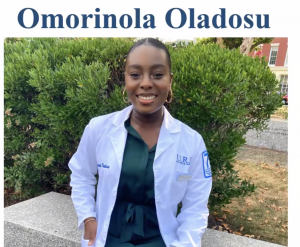 The nurse has the authority, the accountablility and responsibility for nursing practice, makes decisions, and takes actions consistent with the obligation to promote health and provide optimal care.
The nurse has the authority, the accountablility and responsibility for nursing practice, makes decisions, and takes actions consistent with the obligation to promote health and provide optimal care.- The nurse owes the same duties to self as to others, including the responsibility to promote health and safety, preserve wholeness of character and integrity, maintain competence, and continue personal and professional growth.
- The nurse, through individual and collective action, establishes, maintains,and improves the moral environment of the work setting and the conditions of employment, conducive to quality health care.
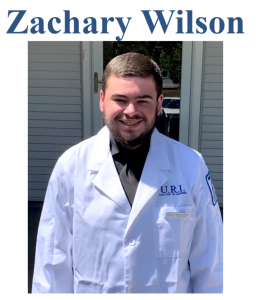 The nurse, whether in research, practice, education, or administration, contributes to the advancement of the profession through research and scholarly inquiry, professional standards development, and generation of nursing and health policies.
The nurse, whether in research, practice, education, or administration, contributes to the advancement of the profession through research and scholarly inquiry, professional standards development, and generation of nursing and health policies.- The nurse collaborates with other health professionals and the public to protect and promote human rights, health diplomacy, and health initiatives.
- The profession of nursing, collectively through its professional organizations, must articulate nursing values, maintain the integrity of the profession, and integrate principles of social justice into nursing and health policy.
“As you move forward in your career, be informed and inspired by this code, as well as by those who have gone before you,” Dean Wolfe urged the new nursing students. “Be an agent of change to improve the wellbeing of others.”
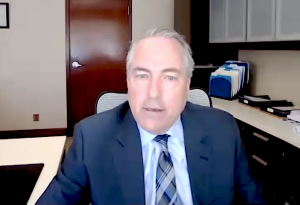
Guest speaker, Kent Hospital President and CEO Robert Haffey, urged the students to overcome the doubt and stress they may feel as they embark on their new careers. In considering whether nursing is right for them, he asked them to consider three questions:
- Is this calling for me?
- Can I care for people the way they should be cared for?
- Can I make the sacrifice necessary to be successful in a nursing program?
“If you can answer yes to these three questions, then the answer to your original three questions — Will I make it? Did I make the right decision to go into nursing? And will I get a job when I graduate? — will also be yes,” Haffey said.
 Haffey reminded the graduates that putting on the white coat is their ticket into “the sacred space” — the personal privacy of patients into which nurses must assert themselves, a physical privacy and an informational privacy. They must respect that privacy, refrain from any judgement, treat all patients equally, and maintain trust by keeping their information private.
Haffey reminded the graduates that putting on the white coat is their ticket into “the sacred space” — the personal privacy of patients into which nurses must assert themselves, a physical privacy and an informational privacy. They must respect that privacy, refrain from any judgement, treat all patients equally, and maintain trust by keeping their information private.
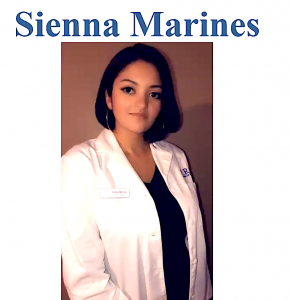 “Patients are forced to be vulnerable to you so that they can receive the care they need from you. You will be poking and prodding people that will expose people in a way they will likely not be comfortable with. You will need to do your best to recognize and minimize your patient’s discomfort,” Haffey said. “And always, always remember there is a person, not a patient, at the end of your stethoscope.”
“Patients are forced to be vulnerable to you so that they can receive the care they need from you. You will be poking and prodding people that will expose people in a way they will likely not be comfortable with. You will need to do your best to recognize and minimize your patient’s discomfort,” Haffey said. “And always, always remember there is a person, not a patient, at the end of your stethoscope.”
Associate Dean Mary Leveillee urged the students to reflect on their commitment to the practice, values and ethical standards nurses must adhere to, and defined the significance of the milestone the white coat ceremony represents.
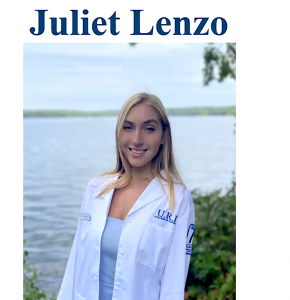 “The white coat represents the demarcation between your pre-clinical coursework and the and the professional clinical phase of your education. You will now be caring for patients,” Leveiilee said. “It demonstrates your growing knowledge and evolving expertise. It stands as a symbol that distinguishes you as a member of the patient care team. It represents the trust that patients will have in you.”
“The white coat represents the demarcation between your pre-clinical coursework and the and the professional clinical phase of your education. You will now be caring for patients,” Leveiilee said. “It demonstrates your growing knowledge and evolving expertise. It stands as a symbol that distinguishes you as a member of the patient care team. It represents the trust that patients will have in you.”
Clinical Associate Professor Joan Dugas delivered the faculty address, introducing some of the professors students will be working with and outlining some of the research opportunities available to them. She also reminded the students that while the health of their patients is the utmost priority, it is also important to remember their own health as well.
 “You need to start taking care of yourself first,” Dugas said. “Think about the ways you take care of yourself. How do you stay healthy? You have to be emotionally, physically and spiritually ready to take care of your patients. Trying to maintain health on a daily basis really takes a commitment every day. So I want you to think now as you start your nursing career,
“You need to start taking care of yourself first,” Dugas said. “Think about the ways you take care of yourself. How do you stay healthy? You have to be emotionally, physically and spiritually ready to take care of your patients. Trying to maintain health on a daily basis really takes a commitment every day. So I want you to think now as you start your nursing career,
what will help you maintain balance and health throughout your career.”
The nursing students then donned their white coats for the first time and recited, via Zoom, a pledge to uphold the ethics and principles of the nursing profession, which reads:
“As a nurse dedicated to providing the highest quality care and service, I solemnly pledge that I will:
- Consider the welfare of humanity and relief of suffering my primary concerns;
- Act in a compassionate and trustworthy manner in all aspects of my care;
- Apply my knowledge, experience and skills to the best of my ability to assure optimal outcomes for my patients;
- Exercise sound professional judgment while abiding by legal and ethical requirements;
- Accept the lifelong obligation to improve my professional knowledge and competence;
- Promote, advocate for and strive to protect the health, safety and rights of the patient.
- With this pledge, I accept the duties and responsibilities that embody the nursing profession. I take this oath voluntarily with the full realization of the responsibility with which I am entrusted by the public.”

